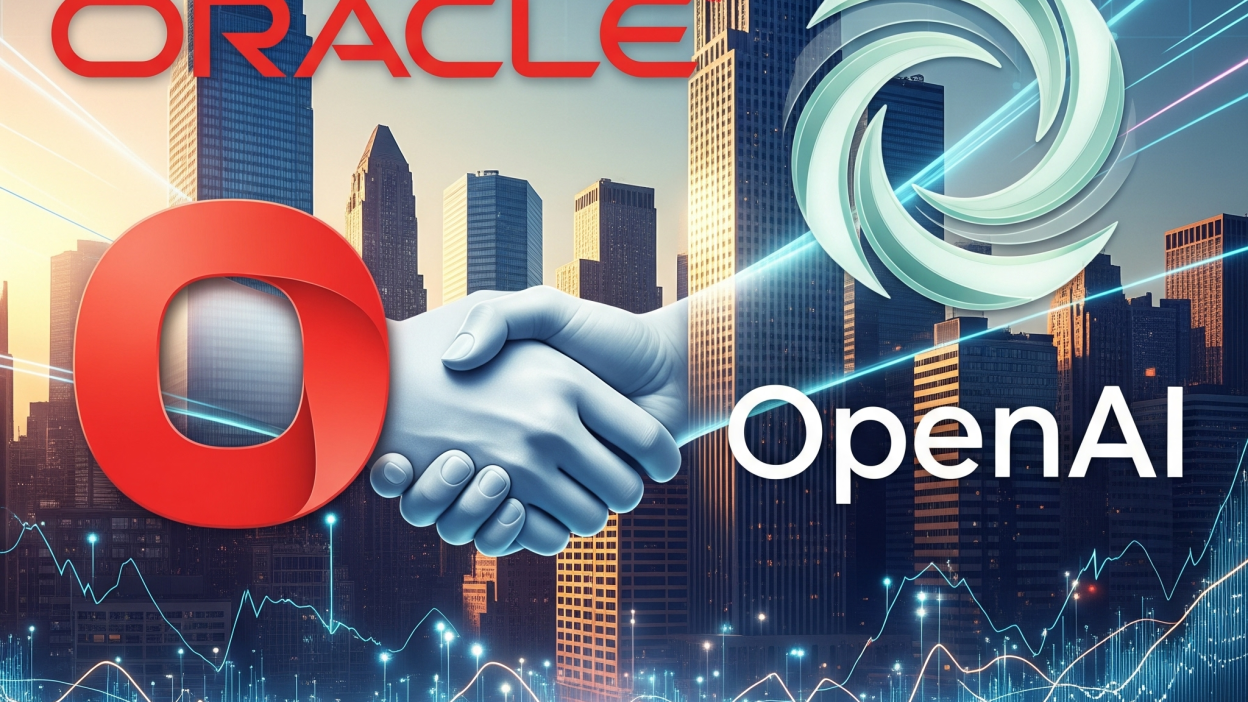Oracle’s Surprise Move: How Its OpenAI Partnership Shook Wall Street and the Global Tech Market
In an unexpected move that caught investors, analysts, and tech enthusiasts off guard, Oracle recently announced a strategic partnership with OpenAI. This collaboration, merging Oracle’s enterprise cloud expertise with OpenAI’s state-of-the-art artificial intelligence capabilities, has sent ripples through Wall Street and the broader technology sector. Experts worldwide are now scrutinizing the implications of this alliance, examining how it could accelerate AI adoption, reshape enterprise software, and influence global investment trends.
Why the Deal Surprised Wall Street
Oracle, a stalwart of enterprise software and cloud infrastructure, is not typically known for headline-grabbing AI announcements. The sudden partnership with OpenAI, a leading AI research organization, signals a significant strategic pivot towards AI-driven services. Wall Street investors were particularly surprised due to:
Timing: The partnership was announced abruptly, with no prior rumors or leaks, creating immediate buzz in financial markets and tech circles alike.
Scope: The deal goes beyond a simple collaboration; it spans enterprise AI deployment, advanced cloud integration, and the potential rollout of AI-as-a-Service solutions. This positions Oracle to provide sophisticated AI tools directly to businesses.
Market Positioning: By joining forces with OpenAI, Oracle is now positioning itself as a serious competitor to Microsoft Azure, Google Cloud, and AWS in the AI landscape. Analysts note that Oracle could leverage its existing enterprise customer base to rapidly scale AI adoption.
Global Implications of the Partnership
The impact of this partnership extends far beyond the United States:
Europe: Companies may accelerate adoption of AI-powered enterprise solutions while aligning with strict GDPR-compliant AI frameworks. This could give European businesses a competitive edge in automation, analytics, and operational efficiency.
Asia-Pacific: Oracle has the opportunity to tap into high-growth markets like India, Singapore, and Japan, where cloud adoption is soaring. AI-powered cloud services could revolutionize industries ranging from finance to manufacturing.
Emerging Markets: Small and medium-sized enterprises (SMEs), previously limited in access to advanced AI tools, could now leverage OpenAI’s models via Oracle’s infrastructure, speeding up digital transformation in regions like Africa, Latin America, and Southeast Asia.
Potential Benefits for Investors
The Oracle-OpenAI deal presents multiple opportunities for investors:
Stock Market Impact: Oracle shares have experienced immediate volatility, reflecting a mixture of excitement and caution among investors.
AI Market Growth: Analysts predict that enterprise AI adoption could accelerate significantly, benefiting cloud service providers, AI startups, and AI-driven software vendors.
Competitive Edge: Oracle may secure long-term contracts with global corporations, offering tailored AI solutions powered by OpenAI’s advanced models. This could strengthen Oracle’s revenue streams and market positioning.
Challenges and Risks Ahead
Despite its potential, the partnership carries inherent risks:
Regulatory Scrutiny: As AI adoption grows, governments worldwide are increasingly monitoring AI applications. Oracle and OpenAI may face regulatory hurdles, especially regarding data privacy, AI ethics, and model transparency.
Integration Complexities: Combining Oracle’s legacy systems with OpenAI’s AI models could pose technical challenges. Seamless deployment and reliability will be key to customer satisfaction.
Market Expectations: Investors will expect rapid revenue growth from AI initiatives, placing pressure on Oracle to execute flawlessly and deliver measurable business outcomes.
Actionable Takeaways
-
For Investors: Monitor Oracle’s quarterly earnings and AI-related revenue trends closely to gauge the partnership’s financial impact.
-
For Global Enterprises: Explore Oracle-OpenAI tools to enhance cloud operations, automation, analytics, and AI-driven decision-making.
-
For Competitors: Microsoft, Google, AWS, and other cloud providers may accelerate their AI strategies, opening up new opportunities for innovation and collaboration in the market.
FAQs
Q1: Why did Oracle choose OpenAI as a partner?
Oracle aims to strengthen its AI capabilities and accelerate enterprise adoption, while OpenAI gains access to Oracle’s robust global cloud infrastructure, enabling broader deployment of its AI models.
Q2: How will this affect Oracle’s stock?
Short-term volatility is expected due to market speculation. However, long-term revenue growth driven by AI solutions could boost investor confidence.
Q3: Is this deal limited to the U.S.?
No. The partnership is global, with AI-powered solutions expected to be deployed across Europe, Asia-Pacific, and emerging markets.
Q4: Will other cloud providers respond?
Yes. Microsoft, Google, and AWS are likely to intensify their AI initiatives to remain competitive, potentially leading to faster innovation in enterprise AI.
Q5: How can businesses leverage this partnership?
Enterprises can access AI-powered cloud solutions for automation, analytics, predictive modeling, and enhanced operational efficiency, making it easier to scale and innovate in a competitive market.
This landmark collaboration positions Oracle as a more aggressive AI player on the global stage, signaling a new era in enterprise cloud services. For investors, enterprises, and tech enthusiasts, the partnership is more than a headline—it’s a glimpse into the future of AI-powered business innovation.
Subscribe to TBB for exclusive insights, analysis, and updates on AI innovations, enterprise technology, and market movements worldwide.
Note: Logos and brand names are the property of their respective owners. This image is for illustrative purposes only and does not imply endorsement by the mentioned companies.



